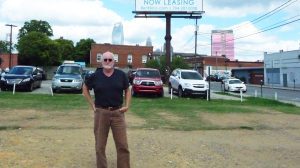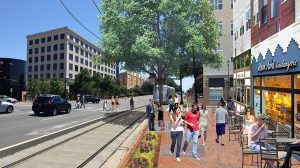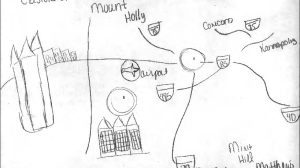Articles

When New Orleans flooded 10 years ago last month, it looked to many people in America as though the city could never recover. Today, when the word “resilience” dots virtually every scrap of writing on urban policy around the globe, New Orleans provides iconographic proof that a city is, in fact, a hard thing to […]

Are more Mecklenburg County parents these days opting for private school over public, or for charters or home schools? With the 2015-16 school year underway, UNC Charlotte Urban Institute researchers looked at how enrollment choices have changed for Mecklenburg families in the past 20 years. The animated graphic below shows how Mecklenburg County public, private, […]

[highlightrule]As an important block on Camden Road faces likely development, its recent history tells a complex narrative of a once-derelict area and a man with a vision, and shows how success changes a neighborhood.[/highlightrule] Recent news that one of the last remaining sites in Charlotte’s South End is scheduled for high-density redevelopment should come as […]

Density alone does not equate to good urbanism. Density is a necessary ingredient, but raw density of jobs, housing or retail does not create a great street, much less a great place. Parts of downtown Atlanta are a classic example of this. Those tall towers empty at 5 p.m., creating an employment ghetto in the […]

Consider it a victory for the digital natives. When the UNC Charlotte Urban Institute was first considering creating a public policy journal focusing on the Charlotte region, our thinking was old school: Recruit talent from across the institute, university and region, and provide a quarterly print journal for them to share expertise and insights with […]

Construction for the 9.3-mile Blue Line Extension light rail project began in January 2014 and is expected to be completed in time for service to begin in 2017. The $1.16 billion project is funded with federal, state and local money. On June 11, photographer Nancy Pierce documented the huge construction project as it sweeps northeast […]

Three months ago my family and I moved into our first home. Something about buying a house makes you feel like a bona fide adult, and with that come adult decisions. When my husband and I were deciding where in the city we wanted to live, like many young families we fell into the trap […]

During one of my college English classes, the professor told us Southern literature is distinguished by a heightened sense of family, history and place. (In a cheeky paper published years later, another UNC professor offered evidence to suggest the signifier can actually be reduced to a single entity: the presence of a dead mule.) Recently, […]

Two weeks ago I beamed with pride for Charlotte as U.S. Transportation Secretary Anthony Foxx and Mayor Dan Clodfelter cut the ribbon to begin the CityLynx Gold Line streetcar service. I’ve lived in and visited cities with streetcar lines and often longed for an America where tracks once again crisscross our cities. The past can […]

Each of us has a different image in our minds of what constitutes a place. Is it the road network? The buildings? The people? One UNC Charlotte geography professor has been asking students on the first day of class to draw a map of Charlotte. He doesn’t tell them what type of map, or even […]

Last September, a group of enthusiasts pulled together a series of eight small parks-for-a-day in on-street parking spots along Tryon Street in uptown Charlotte. Now, the city’s Department of Transportation is offering its official stamp of approval to these “parklets.” Or at least, it’s offering a process for you to get a permit to install […]

[highlight]Charlotte leaders have been talking about the outerbelt, Interstate 485, for decades. While most residents were concerned primarily with what it would mean for drive times, planners and others spent time contemplating the highway’s effect on the area’s growth. A sampling of comments over the years.[/highlight] “We’re going to have to get far more serious […]